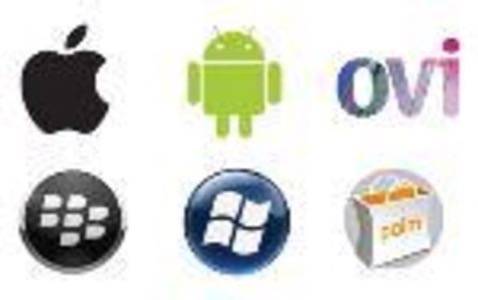Who will win the smartphone race and how will they get there? Who will end up controlling the user experience on the device – the manufacturers or the operating system makers? These were the sort of questions being discussed on a panel at the Open Mobile Summit in San Francisco last week. On hand were several executives from device makers themselves, including HTC, Samsung and Motorola.

In a panel moderated by John Jackson, VP Research at CCS Insight, Motorola SVP Alain Mutricy, HTC President Americas division Jason Mackenzie, Samsung Chief Strategy Officer Omar Khan and Intel VP Ultra Mobility Group Mike Bell, discussed the ongoing platform wars, not just between mobile platforms themselves, but also between mobile and the PC.
Thoughts on Android
The first question to the panelists was how they viewed Android’s impact on the industry.

HTC’s Mackenzie said that Android has helped HTC transition from a hardware-based company to one focused on the software-based user experience. He mentioned the HTC Sense skin and its accompanying service, as an example of this. He also said that Google’s rapid speed of innovation with Android is amazing. “It’s faster than anybody right now.” He said Google should continue to keep Android open, as it appears it will, and should continue to innovate quickly with OS releases and Google services.
The moderator asked if that speed makes it hard for OEMs to keep up.
None of the panelists said that speed was a bad thing. Instead, Murticy said that the pace of innovation helps Motorola “bring great experiences to customers,” and it helps more people connect to the Internet. Khan agreed with Mackenzie that it allows the company to focus on building user experiences, and he then talked about how Samsung can build things like its Samsung Media Hub, for example, on top of Android.
Mike Bell from Intel said that Android lets companies build “desktop-like experiences,” which helps Intel’s business grow, as those experiences require processing power.
Mobile Platform Wars, Not a Zero Sum Game
Jackson said we often default to zero sum thinking when it comes to platforms, but it’s not one versus another, necessarily. He asked the panelists to share their thoughts on the platform “wars.” Bell said the emerging Web standards could create “app store like experiences” that function using Web technologies.
Mutricy agreed, saying that the future is the mobile Internet, and in the future everything will be about the Internet and HTML5.
Future Business Models for OEMs
Next, the panel was asked about the future of device makers’ business models. Khan talked about how Samsung’s Galaxy S line of phones includes a series of services built on top of Android. In doing so, it wants to create an affinity for Samsung devices across platforms, and throughout the upgrade cycle.
HTC’s Mackenzie said that the company is intrigued not by services and addtional revenue streams, but building flexible, natural user experiences that feel like one UI throughout. “This is how we’ve been successful over the past years and it’s how we will be successful in the future,” he said.
For Motorola, ?Mutricy said it’s about taking the customer experience to the next level. For example, it’s working on remote diagnostic features for its devices which could help differentiate its brand among users.
OEMs Thoughts on Tablets
On tablets, Intel’s Bell thought tablets still need to hit the right price point, which should be less than you can buy a netbook computer for, ideally. Mutricy said that tablets are all about user interaction with the device, which allows for all types of possibilities for these devices, and therefore different types of pricing.
Khan talked about his company’s Galaxy Tab, launching this week, and how it, like all most of the new tablets coming out now are developed primarily for touch. When consumers get their hands on these devices, Samsung hopes to learn a lot about how users want to use tablets, and respond to that feedback.
Mackenzie said that HTC is taking a “we’ll see” approach, primarily, when it comes to tablets, and wants to see how big and strong the consumer market will really be. Innovation around data plan pricing is going to be important going forward to take away barriers to adoption when it comes to connected devices, he noted. Khan agreed, saying that multi-platform data plans will be key.
Top Mobile Platforms of the Future
Looking forward, Jackson asked panelists what the top mobile platforms will be by 2015, besides Android, of course. Bell had to say Android, and Apple, too, and perhaps there will be someone we haven’t even thought of yet. Mutricy said that by 2015, it could be HTML5 and the Internet at the top, but nobody can say today what the top platform maker will really be. Khan said that from the developer point of view, the complexity they’re facing now with all the different platforms will lead to finding easier ways of doing things, and that will likely mean looking to the Web itself.
Mackenzie agreed with the others that you can’t count out Apple and Google, but you can’t count out Microsoft either. “That may not be a popular thing to say….but they have to be successful on this, so I wouldn’t count them out yet.”









